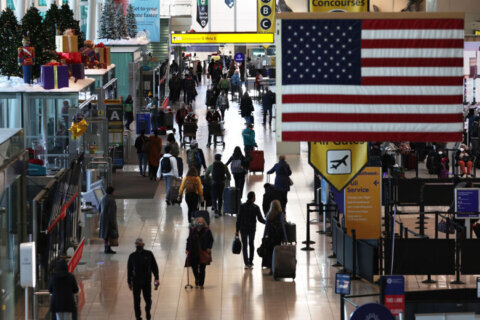After two years of reviewing the university’s history, a task force is recommending that Loyola University in Maryland take several steps, including renaming a building, in response to its connection to slavery.
In December 2021, Loyola’s then-Interim President Amanda Thomas convened a task force to review the university’s ties to slavery. In a nearly 30-page report, the task force described “evidence of a direct financial connection between Loyola’s founding and the proceeds of the [Georgetown University] 272 sale.”
Part of that involved learning that the university’s first president hired what documents called “servants.” However, a student later learned that was a euphemism for enslaved people, according to David Carey Jr., the Doehler Chair in the history department and a member of the task force.
One of the first connections discovered, Carey said, was a letter written in 1859. It was written by “one of the purchasers of 272 men, woman and children that the Jesuits sold to two Louisiana Purchasers in 1838.” Disbursements from that sale went to the university, he said.
The task force also found that at least 22 students, faculty or staff joined the Confederacy and 10 worked with Union forces.
Loyola, according to a news release, is one of over 100 institutions looking into connections to slavery as part of the University of Virginia’s Universities Studying Slavery Consortium.
“We can’t rectify and start to address racial injustice on campus until we can be very open and honest about that past, and try and wrestle and reckon with it,” Carey Jr. told WTOP.
Now that the report has detailed the university’s connections to slavery and its legacy, Carey Jr. said there’s an implementation team in place to help “chart a course that might really reckon with racial injustice and make Loyola a more welcoming place, particularly for descendants of the 272 and Black residents in Baltimore, but even more broadly than that.”
One of the task force’s recommendations is to rename Jenkins Hall and the Jenkins Society, named for George Jenkins, a soldier in the Confederate Army and advocate of the Lost Cause. The Lost Cause, Carey Jr. said, was an ideology “saying that the Civil War was more about states’ rights and didn’t really have to do with slavery.”
Jenkins’ name is engraved in the hall, and Carey Jr. suspects that if the building gets renamed, a plaque explaining why it was renamed would also be added.
“One of the things we’re trying to do is rename that building, but not do it in a way that eliminates the history,” Carey Jr. said.
Other recommendations include adding the history of Loyola’s connections to slavery and its legacies into campus life, and making a Loyola education more accessible to members of the GU272 community, according to the report.
Carey Jr. said he’s working with students to develop a module that can be added to a first-year course that all students take, “so that every first-year student at Loyola would have access and would be exposed to this history and know this history from the very beginning of their experience here.”
“We understand that we’re going to make mistakes, but always trying to keep the goal of eliminating racial injustice,” Carey Jr. said.
Get breaking news and daily headlines delivered to your email inbox by signing up here.
© 2024 WTOP. All Rights Reserved. This website is not intended for users located within the European Economic Area.








